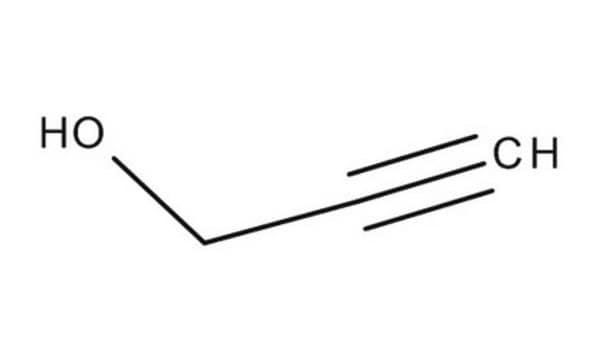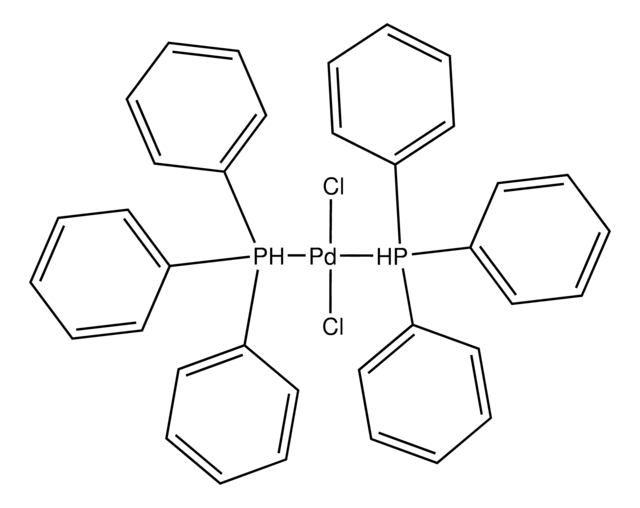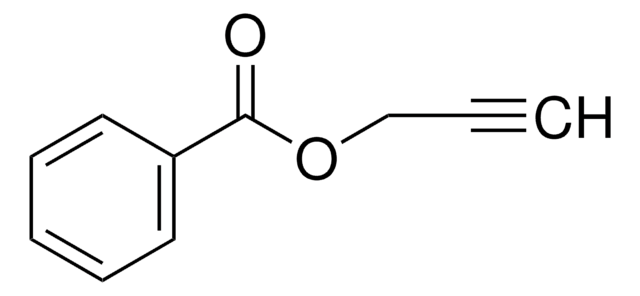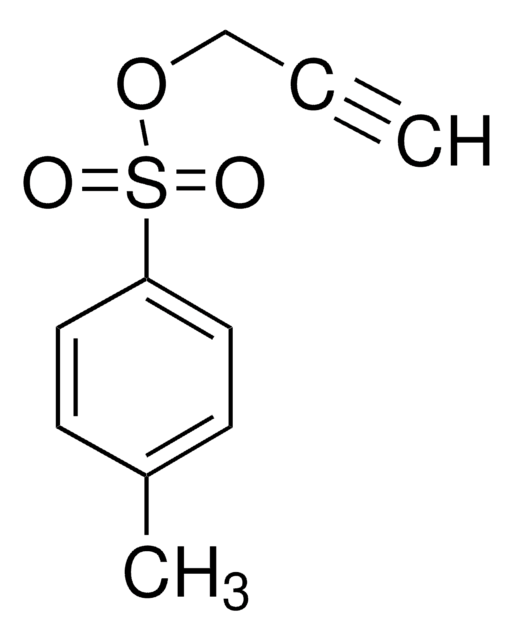About This Item
Recommended Products
vapor density
1.93 (vs air)
Quality Level
vapor pressure
11.6 mmHg ( 20 °C)
Assay
99%
refractive index
n20/D 1.432 (lit.)
bp
114-115 °C (lit.)
mp
−53 °C (lit.)
density
0.963 g/mL at 25 °C (lit.)
storage temp.
2-8°C
SMILES string
OCC#C
InChI
1S/C3H4O/c1-2-3-4/h1,4H,3H2
InChI key
TVDSBUOJIPERQY-UHFFFAOYSA-N
Looking for similar products? Visit Product Comparison Guide
Related Categories
Application
It can also be used to synthesize:
- A variety of regioselective furan-3-carboxamides by reacting with 3-oxo amides using Ag2CO3 as a promoter.
- β-oxopropyl esters by reacting with carboxylic acids in the presence of (arene) (phosphine)ruthenium(II) complex as a catalyst.
Signal Word
Danger
Hazard Statements
Precautionary Statements
Hazard Classifications
Acute Tox. 2 Dermal - Acute Tox. 3 Inhalation - Acute Tox. 3 Oral - Aquatic Chronic 2 - Eye Dam. 1 - Flam. Liq. 3 - Skin Corr. 1B - STOT RE 2
Target Organs
Liver,Kidney
Storage Class Code
3 - Flammable liquids
WGK
WGK 3
Flash Point(F)
91.4 °F - closed cup
Flash Point(C)
33 °C - closed cup
Personal Protective Equipment
Certificates of Analysis (COA)
Search for Certificates of Analysis (COA) by entering the products Lot/Batch Number. Lot and Batch Numbers can be found on a product’s label following the words ‘Lot’ or ‘Batch’.
Already Own This Product?
Find documentation for the products that you have recently purchased in the Document Library.
Customers Also Viewed
Our team of scientists has experience in all areas of research including Life Science, Material Science, Chemical Synthesis, Chromatography, Analytical and many others.
Contact Technical Service



















